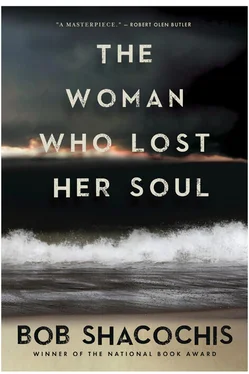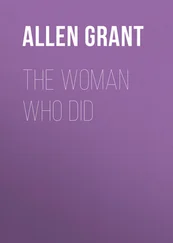I love that. Rock on. Everything is happening out there. I’m prepared to take the risks.
Copy that, he said, pausing for the waitress to set down their plates and leave. Didn’t I hear you mention you wanted to go back east and study classical Arabic? He told her to request an assignment that fit the profile. Let them put you in an embassy somewhere in Indian country as an analyst and then enroll in a class in a local school or find a tutor or something along those lines. Have it both ways, you know. Let the bureaucracy reform you on your own terms.
Hey, she said, suddenly effervescent, will you go to Africa with me? For the wedding?
Go as what? he said. Your bodyguard?
Wouldn’t that be great.
I was there. Last year. Short mission.
Where? You never told me.
Kenya, he said. Two or three days. Jihadi pest control.
Kenya? she said. I haven’t been paying attention.
Chambers returned to the table and they ate their breakfasts garnished with Beltway small talk and the latest gossip about the president, specifically his famously careless propensity to knuckle-walk his way into scandals with women who proved to be stupendously insipid. With perverse optimism, Steven wagered that the commander in chief would one day soon discover a higher purpose for his testicles, their existence to date limited to slinging jism into the dentally challenged mouths of trollops.
God! Daddy! That’s disgusting.
Eville’s face reddened and he said, Sir, come on now, stopping himself from voicing any further admonishment. Chambers clipped him with an indulgent smile and continued on, mindless of his offense.
The undersecretary predicted the president would shoot his way out of this farce, his latest and most dire sexual folly. Watch, said Chambers. And that would be a blessing, don’t you think, but God save us, consider the man’s target list. Haitians? Timorese? Serbs? I’d suck him off myself in the Rose Garden if I thought it would wake him up. He’s a weak sister, a little momma’s boy from Arkansas.
That’s really enough, said his daughter. Stop.
Rome’s burning, Kitten. Christ almighty, what do we have to do?
Eville folded his napkin over his unfinished breakfast and said he intended to drive over to Arlington to visit his father’s grave. Dottie said she wanted to go along, which she did, after her father declined the invitation and they dropped him back at the town house, exchanging the Mercedes for the pickup truck, and turned around, taking Dolly Madison Boulevard to the George Washington Parkway, exiting at Memorial Bridge and through the arch to sacred ground.
Like all family members of the interred, Eville had been issued a VIP pass to the national cemetery but it sat in his odds-and-ends box in Fayetteville and so they parked among the tourists for the long walk in. I’ve never been here before, she confessed, her voice wavering as they hiked from one acre of hallowed ground to the next, the nation’s sorrow a city unto itself, its resources inexhaustible. It goes on forever, doesn’t it, she said. Eville consulted the map he had grabbed at the entrance to the visitor’s center and guided them forward. We go left here. Then, a few minutes later, Okay, right again and up a ways. Then he said with a catch in his voice, Two more blocks is Vietnam, and they counted the headstones down a middle row until they were standing above his father’s grave, perfectly surrounded by the fallen, and Dottie took his left hand in hers, Eville kissing the fingertips of his right hand to touch the rounded white stone of the marble marker and pass the kiss to the dead— Dad. Hey .
They spent the night together again at the hotel, forgoing the talk they might have had about important things, what was around the corner, down the road, over the horizon— fuck the horizon— opting out for a last night of mutually assured dissipation, room service and pills and vodka, a long encore of slothful rutting, a surfeit of sloppy tenderness, these hours dumb and beautiful, themselves sustaining, falling asleep in a knot like tranquilized wrestlers, waking at sunrise to a chirr, slow to realize the source of the intrusion into their peace — Burnette’s pager. Burnette was being buzzed, summoned to report for duty.
She phoned the receptionist, reserving the room for the next two weeks, and then drove with Eville to Andrews Air Force Base, Dottie clearly determined to have at least the front of the conversation they had sidelined the night before. What happened on that island, she confessed, admitted, declared, insisted.
Yeah?
It made me happy, she said. You’ve steadied me.
That’s good, he said. I’m glad.
Then what do we need to say to each other, now? What’s next, Burnette?
We should keep in touch, don’t you think? he said, and she let the silence ferment and enlarge between them before she answered.
I’ve never been to Montana.
Let’s do it then. Let’s go.
He presented her with the keys to the truck before he walked out onto the tarmac for a flight to Kyrgyzstan, and they would keep in touch, more frequently than he could have reasonably hoped, exchanging encrypted updates of their whereabouts and doings and planning a rendezvous in Africa for the wedding. She would write to tell him that things continued to happen in the world that affected her deeply, personally, that she had enrolled in the Agency’s clandestine service course but changed her mind about volunteering for a slot in the paramilitary special activities division. I’m putting on a dress and heels, she said, and heading for the desert, there’s something in me that needs to go to the end of the world, and by midsummer she was in Yemen, working for the ambassador. A woman! she wrote. At first glance, she’s not so much different than Daddy— We’re coming in and hell’s coming with us— you know the type, all faith, no fear, but I have a suspicion underneath the Amazonian veneer she is a Chamberlin. They don’t bother with shitty little hatreds here, they want the West vaporized, every man, woman, and child. Sometimes I feel like I’m crawling on my knees, looking for a place where I once lived, trying to return to the place where I lost myself, or rather found myself, alone in the sea, so deep and so empty. She wrote that she was up to her neck in intrigue, donning a burqa to take a night class at the university in Sana’a, making enemies as fast as friends, both categories sharing an odd politeness. She wrote that a prince who owned Arabian horses was teaching her how to ride. At the end of July, she dropped him a postcard of a mud-walled fortress, saying, Love may be the only thing we are right about. They arranged to meet in Johannesburg in early August, rent a Land Rover, camp their way up through Kruger National Park and into Zimbabwe for the wedding. She never mentioned she would be flying into South Africa after a stopover in Nairobi. Burnette tried phoning her once from Fayetteville but couldn’t get through.
He would not see Dottie again until August, not in Africa but in Germany, in the intensive care unit at Landstuhl Regional Medical Center, the largest American hospital outside the United States. This time with her surely the last time in his life, although he could not even say with absolute certainty that it was her and not somebody else swaddled mummylike in bandages from head to waist, her face hidden and misshapen, a breathing tube snaking into a mouth hole, but when he took her one unbandaged hand, its skin a raku of superficial lacerations rising up her forearm to a band of gauze and tape, he knew well enough, and when he squeezed her hand and said I’m here and felt a bird’s wing beat of his own desperate affirming pressure reciprocated, he knew. I’m here, he told her and he held her hand then long after the machines sounded their alarms, an urgency that seemed to have no corresponding effect on the IC nurse in the room. A harried-looking doctor stuck his head in the door — Do we resuscitate? — and the nurse said, No, her father had signed the order this morning, and the doctor nodded grimly, no saving this one, and left to continue his rounds.
Читать дальше












